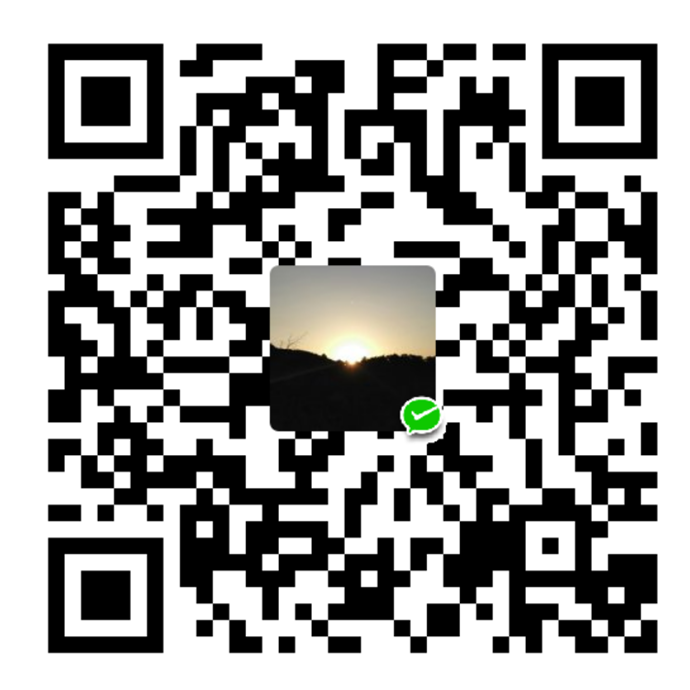科学态度量表修订版(Scientific Attitude Scale-revised, SAI II)
迈阿密大学教师教育系Richard W.Moore与Rachel Leigh Hill Foy 在 1996年发表了“科学教学态度量表”(The Scientific Attitude Inventory, SAI II)。本量表是在前一个版本量表的基础上重新修订过的,量表分为6个维度:(1)科学规律(或定律)不是确定不变的;(2)科学是有限的,观察自然现象和实验是科学解释的基础。(3)科学要尊重客观事实,不能人云亦云(4)科学的价值理论大于实际用途;(5)科学的进步靠每一个人,而不仅仅是科学家;(6)个人对待科学的态度。王秋晨研究中,量表的整体 Alpha 信度值为 0.847,高于 0.8,说明信度良好。
科学态度量表修订版(Scientific Attitude Scale-revised, SAI II)
5赞同
4比较赞同
3不太确定
2不太赞同
1反对
1.任何我们需要知道的事情都可以通过科学来发现
2.一个新的观点,除非所有人都赞同,否则没必要听
3.科学家喜欢对事物更深入地解释
4.如果一个科学家说一个观点是正确的,那么其他科学家都会相信
5.只有训练有素的科学家才能理解科学
6.我们总能通过询问科学家得到问题的答案
7.大多数人都能理解科学
8.科学家并非总能找到问题的答案
9.当科学家有了好的解释,他们就不需要继续研究了
10.对科学知识的探索是枯燥的
11.科学工作对我而言太困难了
12.科学观念是可以改变的
13.我乐意与其他科学家合作来解决科学问题
14.优秀的科学家乐意改变他们的观点
15.科学家必须具有良好的想象力才能创造新观点
16.观点是科学的重要结果
17.科学家们没有足够的时间照顾家庭或进行娱乐活动
18.人们必须理解科学,因为科学影响着他们的生活
19.科学的一个主要目的是生产新药和拯救生命
20.如果一个科学家不能回答一个问题,也许其他的科学家可以回答
21.每一位公民都应该懂科学
22.我可能不会有重大发现,但科学工作会是有趣的
23.科学的一个主要目的是帮助人们过得更好
24.科学家不应互相批评对方的工作
25.感知是科学家具有的最重要的工具之一
26.科学家们认为没有什么是亘古不变的
27.科学规律是不能改变、不存在疑问的
28.我想成为一名科学家
29.科学工作只对科学家有用
30.在科学实验室工作会是有趣的
英文版
Position Statements and Attitude Statements of the SAI II
These are the position statements and corresponding attitude statements of the SAI II.
The position statements are labeled with a number and a letter: for example, 1-A. The letter designates whether the position statement is positive (A) or negative (B). The position statements are in pairs, where the pair 1-A and 1-B are intended to be opposite positions regarding
the same point of view. The numbers in front of each attitude statement indicates its number in the SAI II.
the SAI II uses a five-response Likert Scale.
Strongly agree 1
Mildly agree 2
12 neutral/undecided 3
Mildly disagree 4
Strongly disagree 5
1-A. The laws and/or theories of science are approximations of truth and are subject to change.
- Scientists are always interested in better explanations of things.
- Scientific ideas can be changed.
- Scientists believe that nothing is known to be true for sure.
1-B. The laws and/or theories of science represent unchangeable truths discovered through science.
- When scientists have a good explanation, they do not try to make it better.
- Scientists discover laws which tell us exactly what is going on in nature.
- Scientific laws have been proven beyond all possible doubt.
2-A. Observation of natural phenomena and experimentation is the basis of scientific explanation. Science is limited in that it can only answer questions about natural phenomena and sometimes it is not able to do that.
- Scientists cannot always find the answers to their questions.
- Some questions cannot be answered by science.
- The senses are one of the most important tools a scientist has.
2-B. The basis of scientific explanation is in authority. Science deals with all problems and it can provide correct answers to all questions.
- Anything we need to know can be found out through science.
- We can always get answers to our questions by asking a scientist.
- If a scientist cannot answer a question, another scientist can.
3-A. To operate in a scientific manner, one must display such traits as intellectual honesty, dependence upon objective observation of natural events, and willingness to alter one’s position on the basis of sufficient evidence.
- Scientific questions are answered by observing things.
- Good scientists are willing to change their ideas.
- Scientists must report exactly what they observe.
3-B. To operate in a scientific manner one needs to know what other scientists think; one needs to know all the scientific truths and to be able to take the side of other scientists.
- It is useless to listen to a new idea unless everybody agrees with it.
- If one scientist says an idea is true, all other scientists will believe it.
- Scientists should not criticize each other’s work.
4-A. Science is an idea-generating activity. It is devoted to providing explanations of natural phenomena. Its value lies in its theoretical aspects.
- A scientist must have a good imagination to create new ideas.
- Ideas are the important result of science.
- Science tries to explain how things happen.
4-B. Science is a technology-developing activity. It is devoted to serving mankind. Its value lies in its practical uses.
- Electronics are examples of the really valuable products of science.
- A major purpose of science is to produce new drugs and save lives.
- A major purpose of science is to help people live better.
5-A. Progress in science requires public support in this age of science; therefore, the public should be made aware of the nature of science and what it attempts to do. The public can understand science and it ultimately benefits from scientific work.
- Most people can understand science.
- People must understand science because it affects their lives.
- Every citizen should understand science.
5-B. Public understanding of science would contribute nothing to the advancement of science or to human welfare; therefore, the public has no need to understand the nature of science. They cannot understand it and it does not affect them.
- Only highly trained scientists can understand science.
- Most people are not able to understand science.
- Scientific work is useful only to scientists.
6-A. Being a scientist or working in a job requiring scientific knowledge and thinking would be a very interesting and rewarding life’s work. I would like to do scientific work.
- I would enjoy studying science.
- I would like to work with other scientists to solve scientific problems.
- I may not make great discoveries, but working in science would be fun.
- I would like to be a scientist.
- Working in a science laboratory would be fun.
6-B. Being a scientist or working in a job requiring scientific knowledge and thinking would be dull and uninteresting; it is only for highly intelligent people who are willing to spend most of their time at work. I would not like to do scientific work.
- The search for scientific knowledge would be boring.
- Scientific work would be too hard for me.
- I do not want to be a scientist.
- Scientists do not have enough time for their families or for fun.
- Scientists have to study too much.
参考文献:
王秋晨.核心素养背景下培养高中生科学态度与责任的物理教学研究[D].陕西师范大学,2020.DOI:10.27292/d.cnki.gsxfu.2020.002419.
),2018,43(05):152-157.DOI:10.13718/j.cnki.xsxb.2018.05.025.
Moore R W, Foy R L H. The scientific attitude inventory: A revision (SAI II)[J]. Journal of Research in Science Teaching: The Official Journal of the National Association for Research in Science Teaching, 1997, 34(4): 327-336.

加入心理学网,获得更多
查找量表、在线测试、分享量表,可加微信:57762787;亦可 发文求助